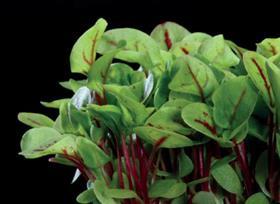
Research at the University of Birmingham suggests plants “hedge their bets” by getting their seeds to germinate at different times.
Described as a “gambling” approach, scientists looked at seeds from thale cress which germinate at different times to hedge against environmental challenges. This affects agriculture which seeks a uniform crop.
They identified a circuit in plant cells that “rolls the dice” to create randomness in a hormone that controls germination, and then used mathematical analysis to find ways of reducing the variability.
Researchers hope to provide the foundations for work that will be able to persuade plants to germinate more uniformly. Such an advance would allow farmers to increase their potential yields, posing a possible solution to agronomic and food security challenges.
Dr. Iain Johnston, from the School of Biosciences at the University of Birmingham, said: 'It's really this interface of biology with maths that lets us understand and predict the processes generating variability in plant cells.'
Co-author Professor George Bassel, also of the School of Biosciences at the University of Birmingham, added: 'Our identification of this variability-generating circuit provides the opportunity to synchronise and enhance future agricultural production.'



